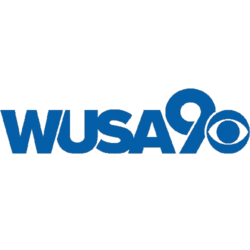Letter to WMATA in response to proposed budget cuts
Members of the Board of Directors, Washington Metro Area Transit Authority (WMATA):
The Greater Washington Board of Trade urges you to reconsider the significant cuts proposed for the fiscal 2022 budget. Any of these reductions, individually or in combination, would dramatically stymie both near-term economic recovery and long-term economic growth. In particular, these cuts would adversely impact the essential workers we all rely on and further widen the region’s stubborn opportunity gaps and racial inequities.
We recognize the extraordinary financial challenges facing WMATA resulting from decreased ridership since the onset of the COVID-19 pandemic. Options are limited, we know. The two federal stimulus programs passed in 2020 provided sufficient funds to stabilize WMATA’s budget through fiscal year end 2021. And now it appears that additional funds will be available to carry through to the end of the 2022 fiscal year. This is great news for the public transit system that serves the national capital region, and our home, yet it’s not a long-term, sustainable approach for reliable day-to-day operations, system expansion and necessary capital expenditures. For example, even prior to current shortfalls, WMATA faced significant funding and strategic challenges.
The Board of Trade continues to support your efforts as we have since Metro’s inception. We have advocated for Metro’s growth, federal and local funding and more; including the founding of MetroNow to help secure long overdue dedicated funding in 2018. Now that our region looks to emerge from the pandemic, we should take this opportunity to reimagine the future of WMATA and public transit. Recognizing the outsized role that buses have played of late – this service made essential work possible throughout the pandemic and carried two to three times as many customers as rail – implementing the regional Bus Transformation Project is a good place to start.
Our economy continues to diversify away from the federal employment base for which Metro was originally designed. A growing population, new businesses and emerging technologies require us to think anew about goals for how WMATA will provide reliable, safe, and convenient regional mobility. And perhaps most importantly, how might we move the system away from the need to consider service cuts during challenging times. Pre-pandemic, transit only captured 3% of the 17 million daily trips in our region – mostly work trips – opening the door to look beyond the commute as a construct for the future. We look forward to working with all of you and WMATA’s management team to explore ways to do better.
Thank you for all you do to make our region more competitive, help decrease the use of single-occupancy vehicles and enhance our quality of life and for considering our position on this important matter. Metro stimulates regional economic opportunities and is a linchpin in the region’s economy. We must find ways to grow not shrink Metro.
Sincerely,

Jack McDougle
President & CEO
Greater Washington Board of Trade
Become a member today
We need your voice at the table to make Greater Washington a place where everyone can succeed



















